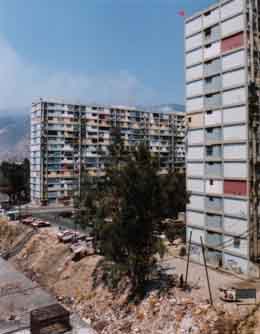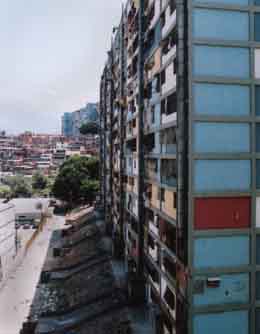| 10 |
Talk in the series 'Producing the Future: Art and Globalization' organized by the Center for Place, Culture (April 24 2003) Sabine Bitter / Helmut Weber |
<< |
||
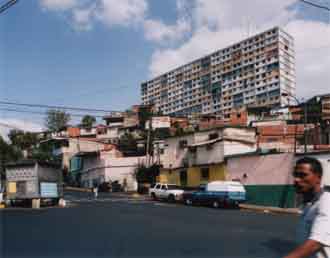 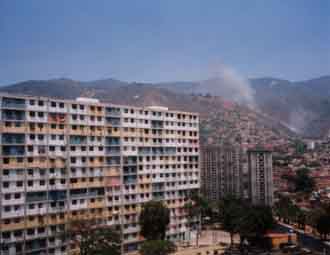 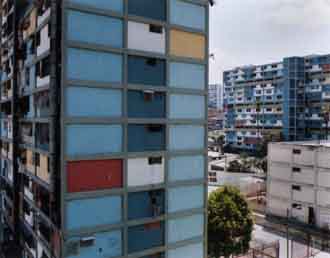 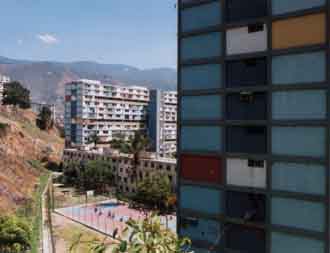 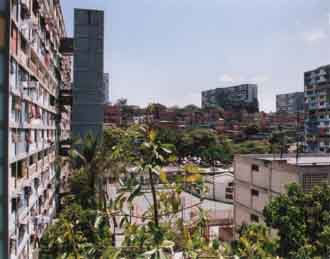 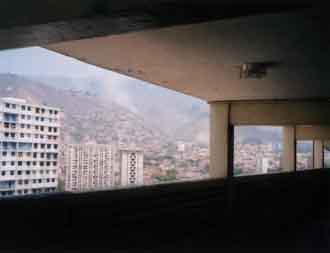 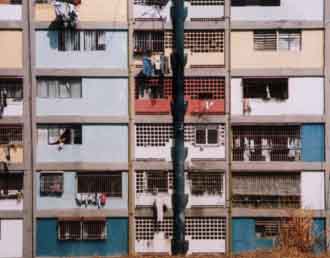 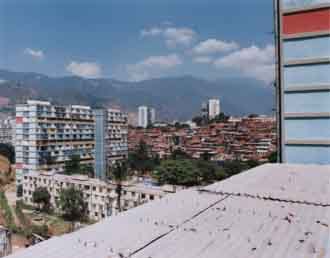 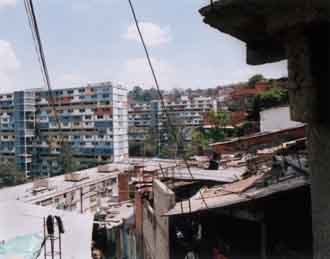 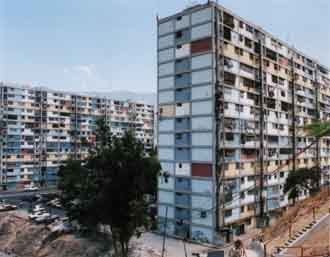 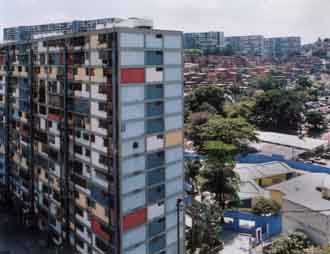 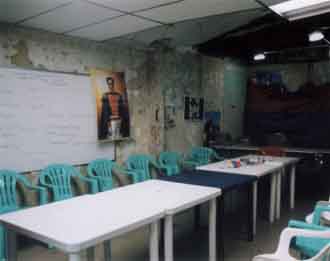 |
El 23 de Enero / |
|||
| El 23 de Enero / Coordinadora Simon Bolivar Cultural organizations like Coordinadora Simon Bolivar are key to the self-organisational processes within the community. They are platforms for social transformations with the task to make life more just and less unequal. Located in the barrios and communities nevertheless they are networked and connected with the larger process of social transformations. El 23 de Enero / urbanism Since we began researching the site of Villanueva's Superblocks it turned out to be an urban area, which is way more complex than a first glance, a first visual perception of architecture would let you expect. Not at least due to the presence of the protagonistic role of the people which is at play these times in that city we are shifting the focus beyond the mere architectural, urban representations onto social, political and economic forces (formal/informal ) which brought these particular urban landscapes of Caracas into existence. Thanks again to Cindi Catz and Jeff Derksen, who invited us to present our works, thanks also to Neil Smith, the director of the Center for Place, Culture and Politics for support and hosting. We enjoyed it a lot. We are also planning to set up a small website, where -- if you like -- you can follow our further devolopements in our project on Caracas. www.lot.at/ccs or visit CaracasCase a project by German Federal Cultural Foundation and Caracas Urban ThinkTank |
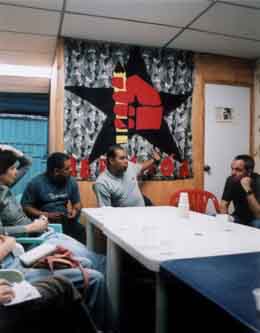 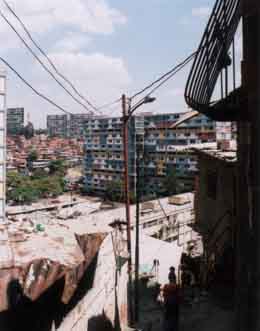 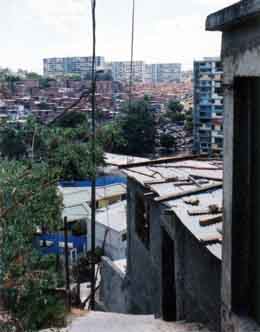
|
|||
